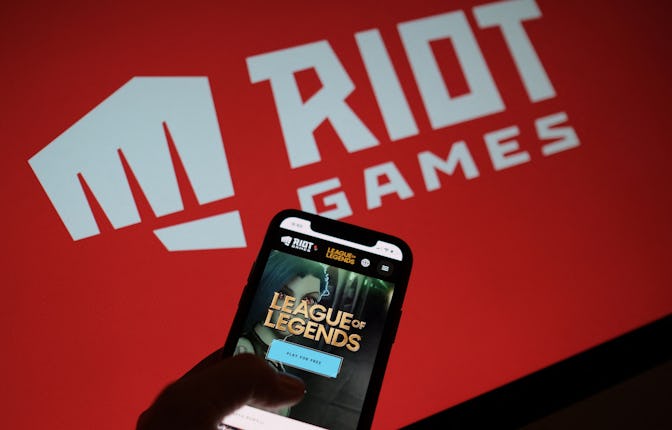What does the Riot Games settlement mean for women in gaming?
The $100 million settlement of a gender discrimination suit could point toward a better future for an industry plagued by claims of sexism and harassment.

This week, Riot Games agreed to a $100 million settlement in a discrimination and harassment lawsuit from women employees at the massive video game developer behind titles such as League of Legends. The deal, stemming from a class-action suit in 2018 that covers over 2,000 current and former employees and contractors, covers some $80 million distributed among members of the settlement and $20 million in legal fees. It also stipulates a set of company agreements, including a fund for a diversity and inclusion program and a three-year monitoring period by a third-party that will oversee gender equity in the workplace.
“This is a great day for the women of Riot Games — and for women at all video game and tech companies — who deserve a workplace that is free of harassment and discrimination,” said the plaintiffs’ attorney Genie Harrison. The 2018 lawsuit came after Riot Games had come under fire from an exposé revealing a “bro culture” that involved sexual harassment and retaliation, and systematically put women employees at a significant disadvantage in the workplace.
The settlement is particularly considered a victory for women Riot employees after the original settlement had been pointing toward just a $10 million sum, before the California Department of Fair Employment and Housing blocked it and advocated instead for a number that could exceed $400 million.
Yet, despite the deal, it remains to be seen whether or not this landmark settlement within one large video game company is enough to indicate a sea change in an industry that has historically been known to foster a widespread culture of harassment and discrimination against women.
The settlement, for instance, does not cover the pending lawsuit against Riot CEO Nicolo Lauren that claims he sexually harassed his executive assistant (Riot Games's board of directors reviewed and approved the results of an investigation from an outside law firm and determined that they were “unable to find any evidence that would justify a sanction of any kind.”). The settlement also comes while Activision Blizzard is in the midst of settling its own sexual harassment and discrimination lawsuits, and Ubisoft in France was sued this summer for “institutional sexual harassment.” This is all to say nothing of the claims of a culture of misogyny on the user side, nor about the dubious portrayals of women characters in video games themselves.
The deal is nevertheless considered a “historic agreement” that, according to DEFH director Kevin Kish, will “ensure lasting change in this workplace, and send the message that all industries in California, including the gaming industry, must provide equal pay and workplaces free from discrimination and harassment.” Indeed, the Riot Games case may set a precedent that can make workplaces warier, on a legal level, of enabling a frat culture that has proven to be widely permissible and ingrained in the industry.
Most of all, though, it most immediately serves as a “first step toward justice for the women of Riot Games,” said one of the suit’s plaintiff’s Jes Negron, who sees the settlement as a sign toward a better future. “I hope this case serves as an example for other studios and an inspiration for women in the industry at large. Women in gaming do not have to suffer inequity and harassment in silence — change is possible.”
"An earlier version of this article stated that the investigation into Riot Games's CEO Nicolo Lauren was conducted internally. The article has been corrected to note the investigation was done by an outside law firm."